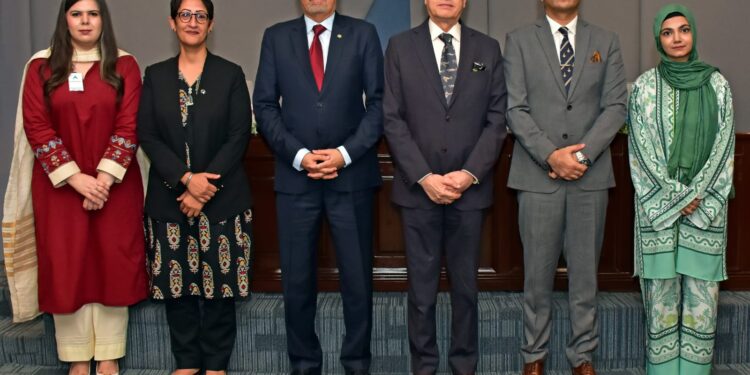The event was widely attended by academics, students, intellectuals, and domain experts. CASS is an independent think tank that continues to arrange academic events for scholars and practitioners interested in national security in its wider context. Ms Nidaa Shahid, Associate Director, CASS Lahore, delivered the opening remarks.
In his keynote address, Air Marshal Asim Suleiman (Retd), President of CASS Lahore, observed that air power is undergoing a profound transformation, driven by the integration of combat aircraft, drones, and precision-guided missiles, which he termed the “Triangle of Air Power”. Mastery of this new model enabled the Pakistan Air Force (PAF) to outpace India in both tempo and precision. He credited the current Air Chief Marshal Zaheer Ahmed Babar Sidhu for orchestrating a centralised command system that forged an unprecedented multi-domain kill chain. Zarb-e-Karrar, he noted, dismantled India’s myths of technological superiority, neutralised its Rafales, S-400s, and BrahMos, and exposed critical gaps in the Indian Air Force’s (IAF) ability to dominate across domains. In his remarks, he stated that while India may have sought to set a “new normal”, in reality, it has created a “new abnormal”—one devoid of substance, clarity, and the ability to deliver results. In the end, he praised Field Marshal General Asim Munir and ACM Zaheer Ahmed Babar Sidhu for taking the wind out of India’s war-mongering political elite.
Dr Rabia Akhtar, Dean, University of Lahore, emphasised that missiles require joint training, ISR, and interoperability for effective deployment. She added that the formation of the Army Rocket Force Command (ARFC) marks a decisive step and positive move towards conventional deterrence. However, the dissemination of its doctrinal contours will offer more clarity regarding how it will supplement our conventional capabilities. She further emphasised that the ARFC must be equipped with ISR, precision, and an unbreakable kill chain. Air Commodore Khalid Banuri (Retd), Senior Advisor Training, Project Phoenix, Air Headquarters, underscored that AI is transforming the character of warfare as algorithms are increasingly assisting human decision-making. Referring to Zarb-e-Karrar as Pakistan’s “Oppenheimer moment,” he stated that niche acquisitions, realistic training, and astute leadership were the key elements behind the PAF’s success. Describing MDOs as “the new black,” he observed that synergy between the armed forces at both the strategic and tactical levels enabled Pakistan to win the war. He concluded that, in the future, a whole-of-nation approach will be required to meet emerging challenges.
In his concluding remarks, Air Marshal Asim Suleiman (Retd) stated that the wars of tomorrow will be decided by speed, precision, and cross-domain integration. He observed that Pakistan’s armed forces are shaping the future of South Asia’s strategic architecture through transformative capabilities. The seminar concluded with a lively interactive session, engaging participants in a forward-looking discussion on the evolving role of multi-domain air power, its doctrinal implications, and the preparedness required to meet emerging future challenges.
Yango Pakistan partners with NowPDP to empower drivers with disabilities
KARACHI: Yango Pakistan, part of the global tech company Yango Group, has partnered with NowPDP, a non-profit organization, to launch...

























